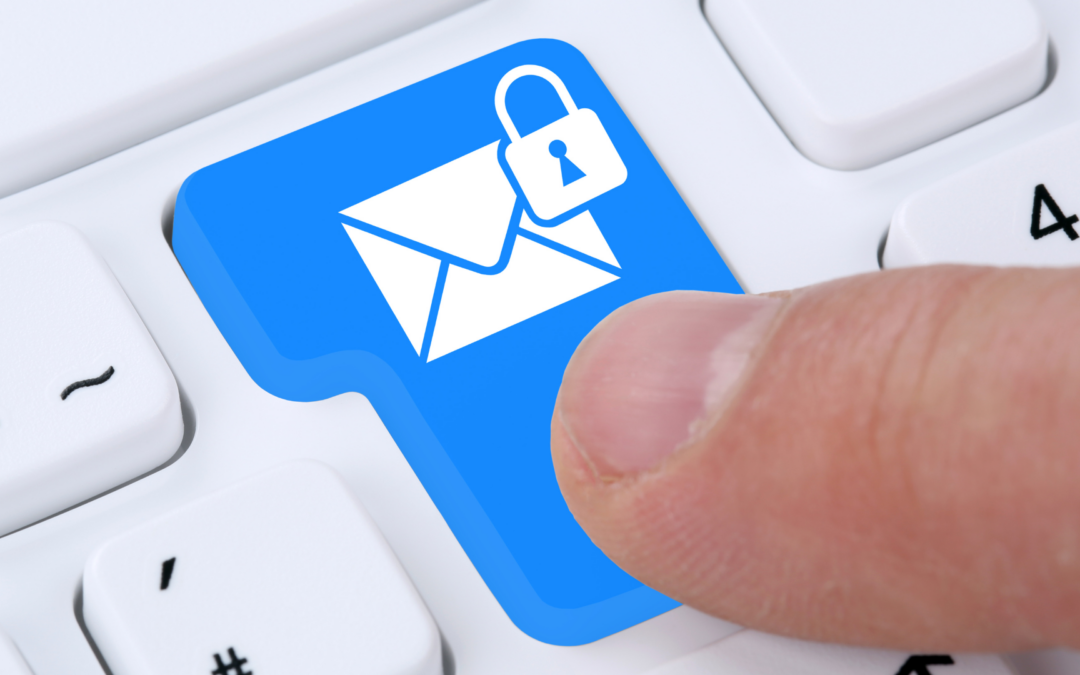Any business that receives and interacts with messages daily from colleagues, customers, and other companies relies heavily on email communication. However, this vital tool is the favorite breeding ground for cybercriminals. What are the consequences of one malicious email going undetected, a counterfeit invoice, an employee following a phishing link, or sensitive information being sent to the wrong person?
The consequences can be dire: financial loss and reputational damage. Modern and advanced email threats daily make it crucial to have secure email systems to protect your business.
This blog explores the benefits of secure email systems, outlines effective email security strategies for businesses, and highlights the importance of email security in combating evolving threats.
The Rise of Email Threats
Emails are a double-edged sword. While they enable seamless communication, they also source a multitude of email threats to businesses, including:
- Phishing Attacks: Cybercriminals impersonate trusted organizations to lure the victim to share sensitive data or click on harmful links.
- Business Email Compromise (BEC): Scammers impersonate suppliers or higher-level officials to deceive the employee into making a fraudulent transaction.
- Malware and Ransomware: Compromise happens when unauthorized users access systems through damaging attachments or links, leading to data loss or paralysis of systems.
In the FBI report for the year 2022, more than $2.7 billion was lost due to BEC schemes alone. Additionally, 91% of cyberattacks begin with phishing emails. These numbers show that business email security should significantly concern businesses.
Why Secure Email Systems Matter
Businesses must have a solid email security strategy to guard against data breaches, cyberattacks, and compliance issues. Among the main advantages is real-time filtering of harmful emails by sophisticated threat detection systems, which lowers the possibility of phishing fraud and credential theft.
Secure email systems with data loss prevention (DLP) features that help avoid the illegal sharing of sensitive information and guarantee the safety of vital business data further improve this.
Multi-factor authentication (MFA) and DMARC protocols are two authentication technologies that strengthen secure email platforms and protect accounts from unwanted access. Additionally, they provide robust malware security by examining attachments and connections to stop ransomware and other harmful.
To businesses in regulated industries, these secure email systems assist in meeting data security standards, thus preserving operational integrity and building customer trust. These communication systems are crucial in the present threat landscape and are vital for secure, uninterrupted communication.
Building Effective Email Security Strategies for Businesses
Your email system needs to be protected using a multi-layered strategy. Here are actionable email security strategies for businesses:
Implement Advanced Spam Filters
AI and machine learning-powered spam filters can spot questionable trends, which lowers the possibility that phishing emails may get through. Additionally, by reducing email clutter, these filters enhance focus and productivity.
Educate Employees
One of the main reasons for email breaches is human error. Regularly train staff members to recognize phishing efforts and utilize email according to best standards. Reinforce training with phishing simulations to assess and improve readiness.
Enable Encryption
Thanks to encryption, unauthorized parties cannot read emails or attachments while they are being transmitted. This is especially crucial when working with sensitive data, such as financial information or client details.
Deploy Endpoint Protection
Malicious email threats can be identified and eliminated by comprehensive endpoint security solutions. Additionally, by protecting devices from malware, these products ensure that compromised attachments don’t jeopardize your network.
Regularly Update Security Policies
Your email security policy should change as cyber threats do. Review and update them to address emerging vulnerabilities. Make sure employees are informed of policy changes to maintain consistent security practices.
The Role of Secure Email in a Holistic Cybersecurity Strategy
According to Verizon, since 94% of malware is delivered over email, email security should be a key component of any comprehensive cybersecurity plan. As cyber threats change, so should your email security rules. By integrating incident response email planning, systems companies can create tiered endpoint defense and network protection against complex threats, reducing risk exposure.
By 2031, ransomware victims could lose over $265 billion a year. Real-time threat detection and sophisticated email filtering are essential for preventing ransomware and phishing assaults.
Secure email solutions also improve operational resilience by safeguarding communication even in the face of cyberattacks. Combined with additional safeguards, they allow for a coordinated defense against dangers and guarantee quick, efficient reactions to assaults. Given the ongoing threats in today’s cyber environment, a comprehensive cybersecurity strategy must include secure email.
How BlueTeam Networks Can Help
At BlueTeam Networks, we understand the stakes in securing your communication channels. Our comprehensive solutions are designed to:
- Provide advanced threat detection and phishing prevention.
- Protect sensitive data with robust encryption and DLP features.
- Enhance account security through MFA and DMARC protocols.
- Offer tailored training to educate employees about email threats.
Ready to Fortify Your Email Security?
Secure email systems are your first line of defense in today’s digital battlefield. Don’t wait until it’s too late. Collaborate with BlueTeam Networks to put advanced email security strategies for businesses and protect your company’s future.
Contact us today to learn more about our solutions and start your journey toward a secure, resilient communication system.

